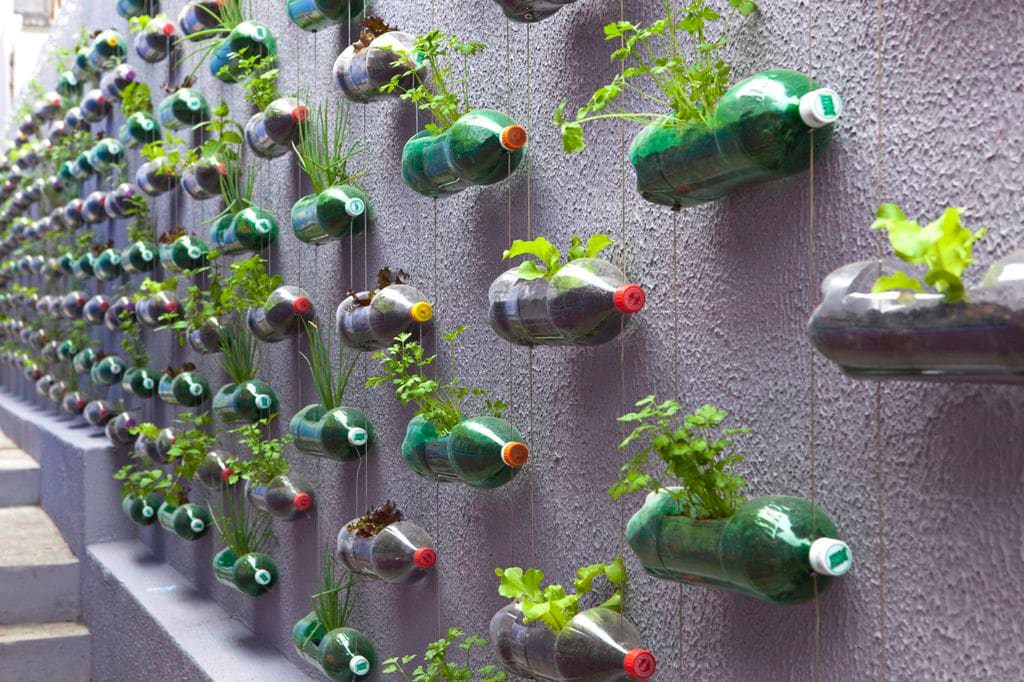Revolutionise Your Garden: Harnessing Plastic for a Sustainable Oasis
Date: 24 Dec 2023
Plastic inundates our world, finding its way into landfills and oceans due to limited recycling capabilities. Yet, amidst this crisis, our gardens can serve as sanctuaries, repurposing everyday plastic waste.
Picture the grocery store aisles, brimming with plastic-clad produce that could easily be wrapped in eco-friendly materials. While starting a home garden is a commendable step, what about the unavoidable plastic?
This guide unveils a transformative approach: repurposing everyday plastic packaging within your garden and beyond.
Recycling with a Purpose
Plastic Bottle Pottery: Those ubiquitous plastic bottles, especially the larger ones, make excellent pot plants. Their versatility is staggering—cut them into diverse shapes and sizes for myriad uses in the garden and household.
Hanging Gardens: Witness the ingenuity in repurposing identical bottles into hanging pot plants. A touch of paint can refurbish colored bottles for a more organic look.
Ingenious Garden Hacks
Water Conservation: Transform plastic bottles into efficient watering tools. Harvest rainwater in these bottles, regulating the release to nourish plants, all facilitated by simple tube systems available at local stores. With the Nelson & Richmond city already under water restrictions rain water harvesting is crucial at the moment.
Reaching the Unreachable: For those challenging spots obstructed from direct watering, a plastic siphon or PVC pipe extension can ensure every root gets its due hydration.
">
Nurturing Seedlings and Beyond
Shielding Young Plants: Vulnerable seedlings find protection under the canopy of sliced plastic bottles, shielding them from pests and weather extremes. Even mature plants benefit from bottle greenhouses, a simple yet effective shelter.
Bottle Tower Gardens: Embrace the innovative concept of creating vertical gardens from stacked plastic bottles. While initially resembling a plastic tower, as plants flourish, it transforms into a thriving green oasis.
Beyond the Garden Bed
Eco-Conscious Bird Feeders: Despite concerns, crafting bird feeders from plastic bottles is a sustainable way to offer nourishment while protecting seeds from the elements.
Self-Sufficient Herbs: Turn a simple plastic bottle into a self-watering herb planter. As roots gravitate towards the base, they thrive independently, minimising watering needs.
Unveiling Hidden Garden Gems
Grocery Store Plastics: Reimagine meat trays as vessels for growing microgreens or repurpose yogurt containers as multi-cell trays for seedlings. These alternatives cut costs and reduce plastic usage.
Repurposed Trays: Rethink seed and gravel trays by utilizing packaging from regular meat purchases—a sustainable, efficient, and economical alternative.
Nature-Friendly Deterrents: Utilize old CDs to deter birds from feasting on your harvest, ensuring your produce remains intact.
A Call for Change
Grocery stores abound with unnecessary plastic-wrapped produce, highlighting the urgency for change. While individual actions matter, collective efforts can propel larger corporations to embrace sustainable practices.
In essence, from ingenious gardening hacks to challenging the status quo, there exists a multitude of avenues to curtail plastic usage. These seemingly non-recyclable plastics find new life in our gardens, promoting sustainability and resourcefulness.
In summary, the spectrum of methods to trim our plastic consumption spans from purchasing fewer plastics to embracing their reuse repeatedly. An encouraging aspect of these items is their resilience—unable to be recycled yet capable of numerous reuses.
What truly irks me is the disregard seen in modern grocery stores. The unnecessary plastic wrapping shrouding most fruits and veggies highlights a glaring issue. While each of us can diminish our plastic footprint, the paramount step lies in compelling larger companies and corporations to adopt similar conscientious practices.
Back...
